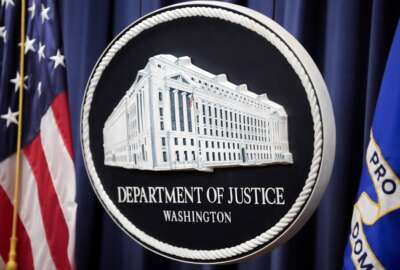SES reform: Is it about improving accountability or just plain politics?
The House Oversight and Government Reform Committee approved the Senior Executive Service Accountability Act that, if approved by the full House, the Senate and...
Commentary by Jeff Neal
Founder of ChiefHRO.com
& Senior Vice President, ICF International
This column was originally published on Jeff Neal’s blog, ChiefHRO.com, and was republished here with permission from the author.
The House Oversight and Government Reform Committee approved the Senior Executive Service Accountability Act that, if approved by the full House, the Senate and the President, would significantly change conditions of employment for members of the Senior Executive Service (SES). When we see a new bill to “reform” the civil service in any way, we always need to ask, “Are you a good bill or a bad bill?” In this case, is the bill really about improving accountability or is it an exercise in politics? I believe the answer is a little of both.
Let’s go through the provisions of the bill and see what the effects would be.

- Modification of Pay Retention for Senior Executive Service Members Removed for Under Performance. Currently, when an SES member is downgraded based upon performance, s/he is granted pay retention. That means you can perform badly, get downgraded and still make SES pay for doing GS-15 work. When the same thing happens to a GS employee, s/he suffers a pay reduction to anywhere from the 1st to the 10th step of the pay grade to which demoted. The SES provision has been a bit of a sweet deal that probably should go away. This provision takes away the pay retention and pays them for the grade level they are going to. Verdict on this one: Accountability
- Performance Requirements be Established in Advance. This provision mandates performance standards be in place at least 30 days before the beginning of the performance rating cycle. In theory, it sounds good. In practice, virtually no one in government and most people in the private sector do not have performance standards in place a month before the previous rating cycle has ended. There is little, if any, benefit to be gained from this requirement. In fact, because much of what may be in the standards is based upon what is doable within the budget, and the Congress hasn’t passed a budget before the beginning of the fiscal year in many years, this requirement will result in no benefit. Verdict: Politics
- Biennial Justification of Positions. This provision would require agencies to justify all of their SES positions, including how the position will affect the agency mission, every two years. Doing so would add a significant bureaucratic requirement that is likely to result in nothing. Most agencies have SES positions running key organizations. Absent changes to those organizations, the position requirements do not change often. The verdict on this one: Politics
- Extension of Probationary Period. Currently, the SES probationary period is one year, during which the SES member can be removed quickly and easily with little means of challenging it. The same probationary period applies to most other federal employees. An argument can be made that the type of work SES members do takes longer to assess and makes a longer probationary period a sound idea. Verdict: Accountability
- Suspensions for 14 Days or Less. Currently SES members may be suspended for 15 days or more, but shorter suspensions are not allowed. This provision changes that to allow shorter suspensions. The addition of suspensions for 14 days or less may make agencies more likely to deal with conduct issues, although there is no evidence that it will happen. This one is close, but the verdict is: Accountability
- Removal to “Promote the Efficiency of the Service.” This change deletes “misconduct” as a reason for removing SES and adds “efficiency of the service.” The change brings the SES more in line with law that covers the rest of the workforce. Verdict on this one: Accountability
- Mandatory Leave. This provision would (a) require SES members to take annual leave during the notice period prior to being removed and (b) prohibit them from accruing more leave during that time. It provides that the leave would be restored if the removal were later reversed. This is a bit of a guilty until proven innocent provision that appears to serve no useful purpose. Verdict: Politics
With four items being related to accountability and three related to politics, the bill tilts more toward accountability. If the three political provisions were removed, it could make it possible for agencies to more easily hold SES members more accountable for conduct and performance. That says nothing about whether agencies would actually use that authority.
Our experience with probationary periods for SES and other employees does not lead me to believe we will suddenly see a rash of firings. As I said in my June 25 post, firing people is not the cure-all that some people think it is anyway. Overall, this bill is a vast improvement over the bill the House previously passed that would allow the Secretary of Veterans Affairs to fire SES members, “notwithstanding any other provision of law.”
MORE COMMENTARY FROM JEFF NEAL:
Putting a contract out on good ideas
What happened to all of the young federal employees?
You’re fired! And other federal management fantasies
Why is change so hard to accomplish in government?
Copyright 2014 by Jeff Neal. All rights reserved.
Jeff Neal is founder of the blog, ChiefHRO.com, and a senior vice president for ICF International, where he leads the Organizational Research, Learning and Performance practice. Before coming to ICF, Neal was the chief human capital officer at the Department of Homeland Security and the chief human resources officer at the Defense Logistics Agency.
Copyright © 2024 Federal News Network. All rights reserved. This website is not intended for users located within the European Economic Area.





